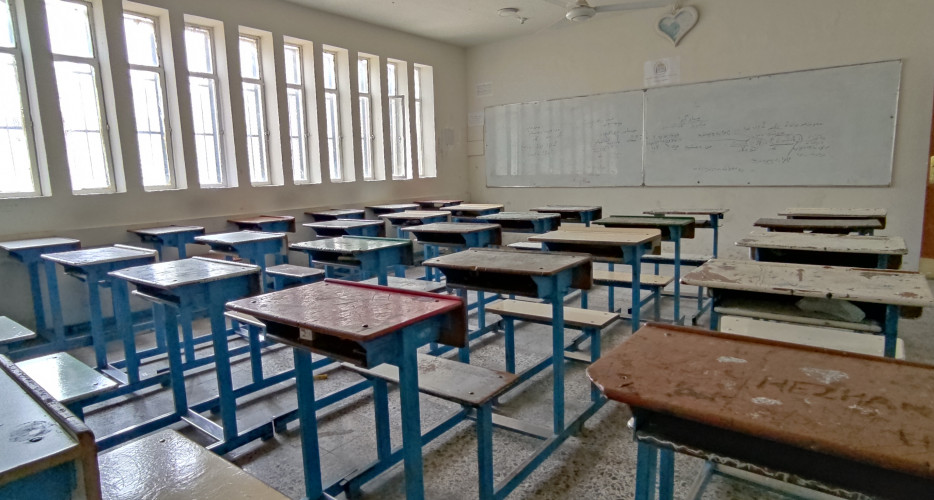Teachers on weeks-long strike in the Kurdistan Region when education lost in the pandemic is yet to be compensated

Peregraf– Ghamgin Mohammed
Teachers have gone on strikes in the Kurdistan Region’s Sulaimaniyah and Halabja provinces, as well as Garmiyan and Raparin administrations for two weeks due to delayed salaries, an issue that further damages education for students who have missed out on several semesters due to the pandemic.
"I give my son lessons at home as much as a teacher does, but he still doesn't know the letters and numbers well and doesn't know how to write them, because he hasn't studied all his lessons on time in grade one because of the coronavirus," Sairan, the mother of a second-grader in Sulaimaniyah, told Peregraf.
In-class education, which should not be less than 200 days according to international standards, was suspended in the Kurdistan Region for most of 2020 and 2021 due to the pandemic.
In-person classes were taught for only 35 days last year - and the rest was taught online. The lessons were taught by a number of teachers and published on a website the ministry had chosen for the students to watch the videos at home without following up with the students.
"The teachers' strike has begun and my child has been at home for two weeks," added Siran. "Teachers have told the children not to return to school until we receive salaries."
Teachers’ strikes first started in 2014 when the government announced they would cut off a percentage of civil servants’ salaries to implement austerity measures for coping with an economic crisis.
This year's February salaries have not yet been fully distributed, while the price of goods and food has hiked in the market.
"We are with teachers' demands to be paid on time and in full, but we don’t support boycotts because students will be affected and the education process will be harmed," said Ahmed Garmiani, head of the Kurdistan Teachers' Union.
Garmiani stressed that the Minister of Education has been following up with the issue of teachers' salaries so that schools will not be closed.
Paragraph contacted officials from the education ministry but they were not ready to comment. "If the ministry has any statements, we will announce them officially,” one official who preferred to stay anonymous said.
The 2021 to 2022 school year will end in June for all grades. To compensate for last year's education, the Ministry of Education decided to study lessons from 2020 in the first month of the 2021-2022 school year.
"It was an impromptu decision because compensation requires studying all lessons full-time, according to the ministry of education's plan, one semester would be studied for two weeks, the semester takes three months to complete,” Goran Abdulqadir, Sulaimaniyah’s Eastern Education Directorate supervisor.
Students have lost months of education since 2020 due to boycotts and the coronavirus pandemic.
"The decline in classroom education, apart from the scientific impact, has had a negative impact on students' morale, as they have been away from school and learning for a long time, and they were busy going to the streets and using smart tablets," said Abdulqadir.
Abdulqadir added that when teachers go on strike the school programs get delayed, and when classes are resumed, lessons are being taught quickly with a poor quality of teaching and learning.